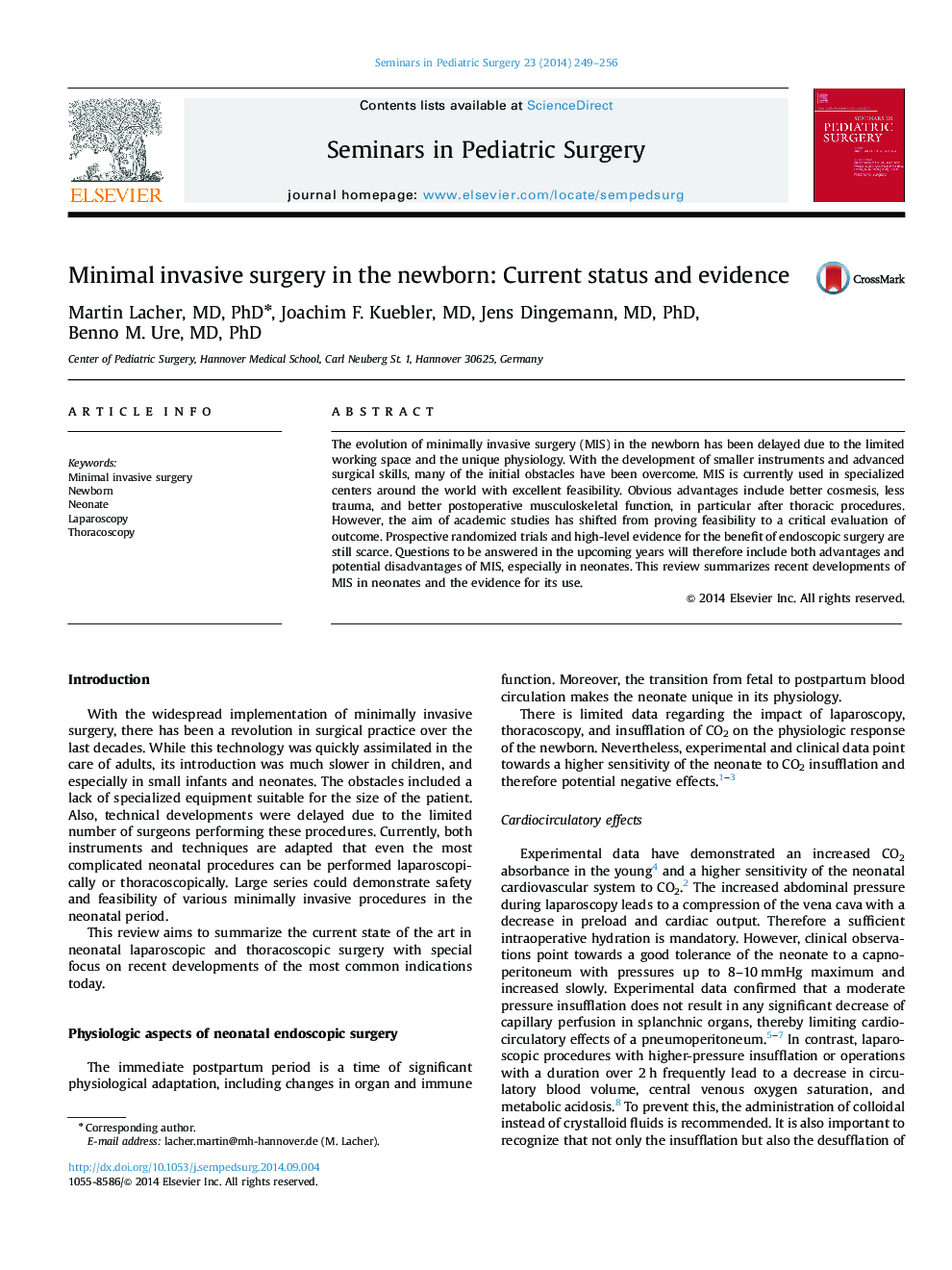| Article ID | Journal | Published Year | Pages | File Type |
|---|---|---|---|---|
| 4176483 | Seminars in Pediatric Surgery | 2014 | 8 Pages |
The evolution of minimally invasive surgery (MIS) in the newborn has been delayed due to the limited working space and the unique physiology. With the development of smaller instruments and advanced surgical skills, many of the initial obstacles have been overcome. MIS is currently used in specialized centers around the world with excellent feasibility. Obvious advantages include better cosmesis, less trauma, and better postoperative musculoskeletal function, in particular after thoracic procedures. However, the aim of academic studies has shifted from proving feasibility to a critical evaluation of outcome. Prospective randomized trials and high-level evidence for the benefit of endoscopic surgery are still scarce. Questions to be answered in the upcoming years will therefore include both advantages and potential disadvantages of MIS, especially in neonates. This review summarizes recent developments of MIS in neonates and the evidence for its use.
